Vegan protein sources – tips for a balanced and high-protein vegan diet!
Proteins are not only very important for building muscle in athletes, but also fulfill many vital functions in the body. They are an important component of hormones, organs, enzymes, cells and provide us with energy. In order to provide the body with enough protein, it is particularly important to ensure a balanced and protein-rich diet. Since meat and dairy products in particular are rich in protein, the vegan diet has been associated with a protein deficiency for years. However, this is nothing more than just a common myth, and luckily there are more than enough excellent and healthy vegan protein sources to easily meet your protein needs. You can find out what these are in our article!
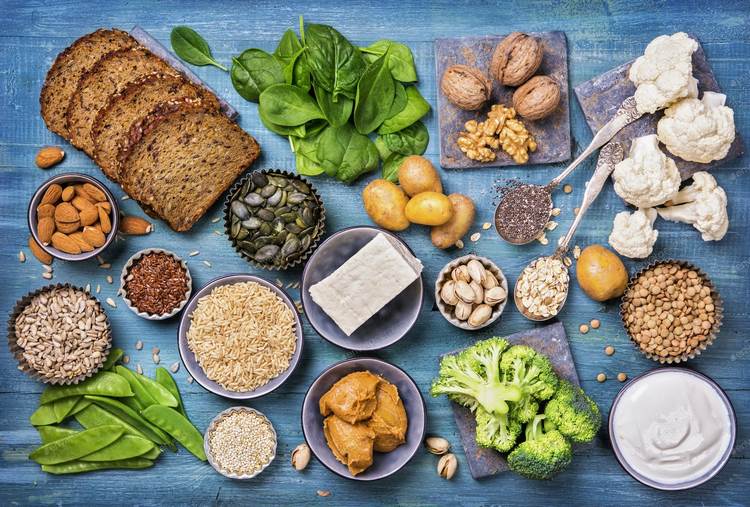
Since the beginning of the 1970s, there has often been discussion about whether the risk of a protein deficiency is higher among vegans than for meat eaters. One of the main reasons for this is the book “Diet for a small planet” published in 1971, in which one finds numerous useful recommendations about the protein intake in the vegan diet. Unfortunately, there are many people who eat a plant-based diet and do not pay enough attention to their protein intake. Kwashiorkor's disease is also known as a protein deficiency disease. It occurs especially in areas of hunger in children or in people with severe eating disorders such as anorexia and bulimia. But vegans who neglect the importance of protein for the body can also contract the serious illness.
Vegan protein sources: what are the protein deficiency symptoms?
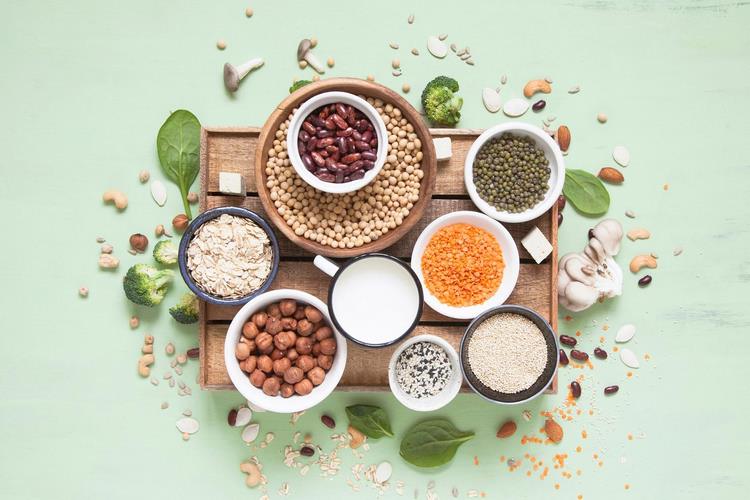
According to health experts, vegans and vegetarians must have their blood protein levels checked at least every 3 months. Below are some of the most common symptoms that indicate mild to moderate protein deficiency. However, we have to warn you that these symptoms are rather non-specific and can have other causes. These include, for example, vitamin deficiency, hormonal imbalance, iron deficiency, etc.
- Chronic fatigue
- Hair loss
- sleep disorders
- Loss of performance and muscle weakness
- Poor concentration
- Depression and anxiety
- Dry skin
- Susceptibility to infection
- Food cravings
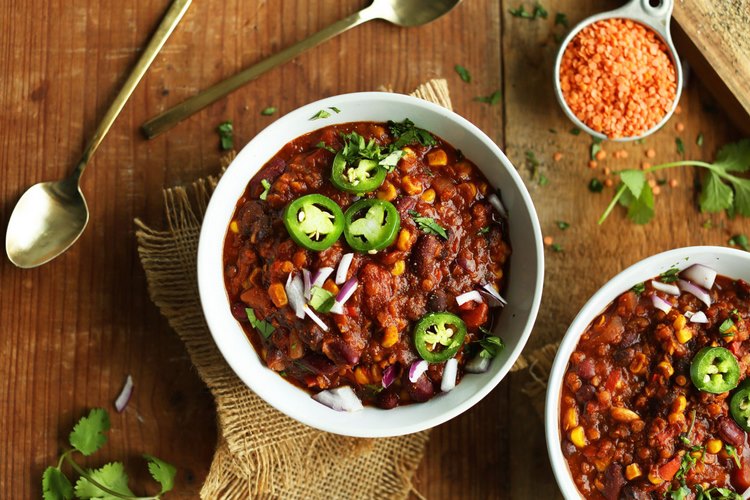
While the excessive consumption of meat and dairy products can lead to a variety of diseases, there is no denying that these foods are very high in protein. However, other important nutrients such as potassium, calcium, zinc, magnesium and important fiber are contained in vegetable proteins. And that is exactly what makes the vegan diet much healthier. However, if you have only recently started a vegetarian or vegan diet and do not replace the animal proteins with suitable vegetable alternatives, the likelihood of suffering from a protein deficiency is very high.
How much protein a day does our body need?
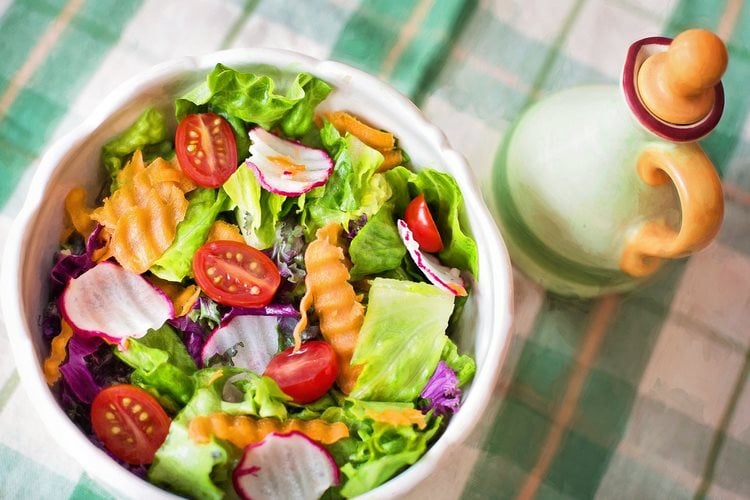
The World Health Organization recommends a daily intake of approximately 0.8 to 1 gram of protein per kilogram of body weight. In other words – if you weigh 50 kilos, you need about 40-50 grams of protein a day. However, the values are not the same for everyone – for people who exercise every day, the recommended amount is around 1.5 to 2 grams of protein per kilogram of body weight. In addition, much of the protein ingested should be rich in the amino acid lysine. Beans contain a lot of lysine of the vegetable foods, while they are found in very small amounts in rice, nuts and cereal products.
Vegan protein sources – which plant foods are particularly high in protein?
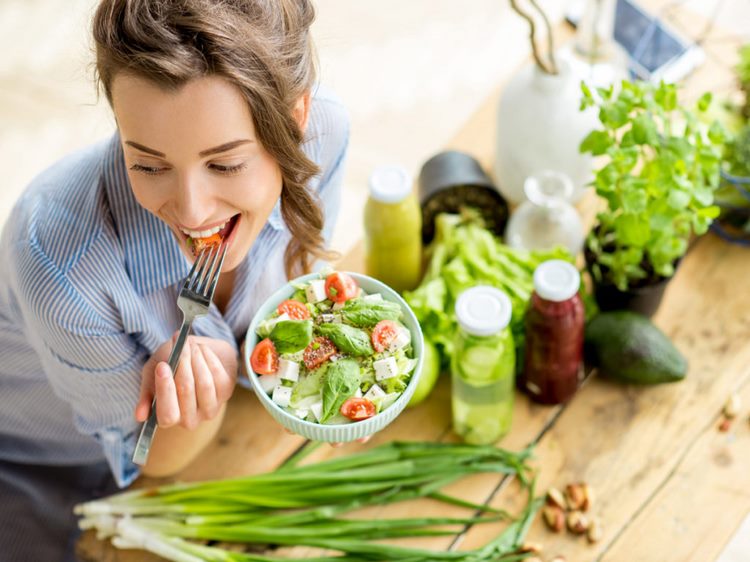
The best way to avoid protein deficiency is, first of all, to ensure a balanced and protein-rich plant diet. Try adding the following foods to your menu.
- Soy milk
- Beans and legumes
- tofu
- Nuts and seeds
- Vegan protein powder
- Vegan protein bars
- Buckwheat and quinoa
Avoid protein deficiency and tips for increasing protein consumption with a vegan diet

So that your body receives all 9 essential amino acids, it is very important to combine the different vegan protein sources. However, this does not have to be done during a single meal. The latter scientific studies have shown that the body can produce all essential amino acids within 24 hours. There are now many websites, blogs and articles on the Internet where you can find tasty, healthy and high-protein vegan recipes. Beans and tofu are undoubtedly the best vegan sources of protein. Unfortunately, there are many people who can hardly digest them. If that applies to you too, try quinoa, chickpeas, nuts, and tempeh. In addition, some vegan protein powders provide about 20 grams of protein per serving, making them another very good option.
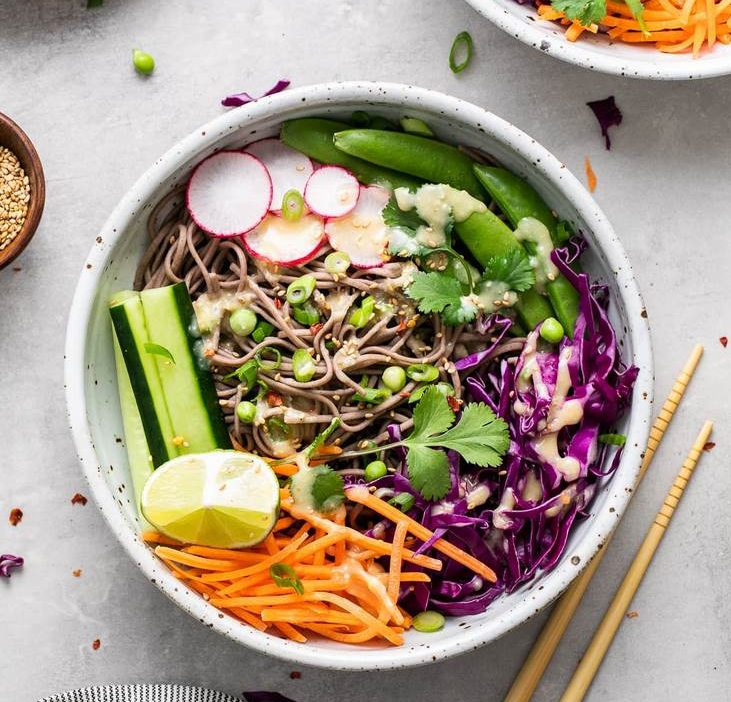
The post Vegan protein sources – tips for a balanced and high-protein vegan diet! appeared first on Deavita.com | Living ideas, design, hairstyles, make-up, lifestyle, health and beauty tips.





















